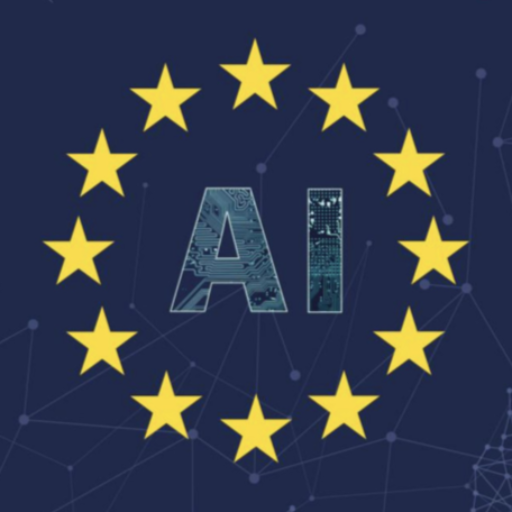EU Law GPT-AI-driven EU law analysis
AI-powered insights for EU law
Summarize an EU legal judgment.
Translate this EU document into Chinese.
Analyze a court ruling on EU law.
Discuss the implications of a new EU regulation.
Related Tools
Load More
LegalGPT
Specialized in legal matters, this GPT could assist lawyers and legal professionals with case research, legal documentation, and even help in predicting case outcomes based on historical data.

Correct English GPT
Write English like a native speaker. Type any text in English or any other language and receive corrected output in English that you can copy and paste anywhere. To improve the style of the corrected text, send "s"

LegalGPT (German Law)
~ Assistent für Vertragsklauseln nach deutschem Recht ~ Spezialisierung auf Risikominimierung in der Gestaltung und Überprüfung aller Vertragsarten ~ Angabe von Gesetzen, relevanten Urteilen und Fachliteratur ~

European Union Law
Expert on EU regulations and directives, offering detailed, formal guidance.

LawGPT
Specialized in legal research and advice
The AI Act GPT
Discover the EU AI Act: A User-Friendly Guide for Effortless Understanding.
20.0 / 5 (200 votes)
Introduction to EU Law GPT
EU Law GPT is an advanced AI model specialized in the analysis and interpretation of European Union legal documents, judgments, and academic papers. Its primary design purpose is to assist legal professionals, researchers, and students by providing detailed, accurate, and context-specific insights into EU law. The model is equipped to handle complex queries, decompose them into manageable parts, and deliver comprehensive answers using a variety of analytical approaches. For example, when examining a court ruling, EU Law GPT can provide not just a summary of the decision but also an in-depth analysis of its implications, relevant legal precedents, and potential future impacts.

Main Functions of EU Law GPT
Legal Document Analysis
Example
Analyzing a European Court of Justice (ECJ) ruling to determine its impact on current EU regulations.
Scenario
A lawyer needs to understand how a recent ECJ decision affects their ongoing case involving cross-border trade within the EU.
Academic Research Support
Example
Assisting with the interpretation of complex EU legal texts for academic papers.
Scenario
A university student writing a thesis on the legal implications of GDPR compliance seeks detailed explanations of specific provisions and their interpretations by the courts.
Compliance Advisory
Example
Providing guidance on how to comply with specific EU regulations.
Scenario
A company wants to ensure its business practices comply with the latest EU data protection laws. EU Law GPT can analyze the regulations and suggest practical steps for compliance.
Ideal Users of EU Law GPT Services
Legal Professionals
Lawyers, judges, and legal consultants who require in-depth analysis and interpretation of EU laws and judgments. They benefit from precise legal insights that aid in case preparation, legal research, and advisory services.
Academic Researchers
Professors, students, and researchers focused on European Union law. They use the service to gain a deeper understanding of legal principles, enhance their research with accurate legal interpretations, and support their academic writing.

Steps to Use EU Law GPT
Visit aichatonline.org for a free trial without login, also no need for ChatGPT Plus.
Access the platform directly without any prerequisites and start your trial immediately.
Upload relevant EU legal documents or specify your query.
Ensure you have all necessary files ready for analysis or clearly state your legal query.
Use the provided tools and options to refine your query or upload additional documents if needed.
Take advantage of the platform's features to narrow down or expand your search as required.
Review the detailed analysis and responses generated by EU Law GPT.
Carefully read through the insights, citations, and legal interpretations provided.
Request further clarification or follow-up assistance as necessary.
If you need more information or a deeper analysis, use the follow-up options to get additional support.
Try other advanced and practical GPTs
雅思学术老师-GPT
AI-powered IELTS Preparation Assistant

Android Studio Developer
AI-Powered Android Development Simplified

Schedule Organizer AI
AI-driven schedules for a balanced life

Coding Wizard Girl
AI-Powered Code Generation & Guidance.

Packing List GPT
AI-Powered Packing List Generator

Prompt Mestre 2.0
Optimize your prompts with AI-powered precision.

EU AI Act Insight
AI-powered insights for EU AI Act compliance

TextTuner
AI-Powered Text Enhancement

My Job Assistant
AI-powered job application drafts.

Voice Engine Text To Speech
AI-Powered Text to Speech Conversion

SMLE Destroyer
AI-Powered SMLE Exam Mastery

Promptie The Prompt Pro
AI-powered prompt engineering made easy.

- Academic Writing
- Legal Analysis
- Case Study
- Policy Research
- Regulation Review
EU Law GPT Q&A
What is EU Law GPT?
EU Law GPT is an AI tool designed for in-depth analysis of EU legal documents, court rulings, and academic papers, providing comprehensive insights and citations according to EUR-Lex standards.
How does EU Law GPT help in legal research?
It assists by analyzing legal texts, extracting relevant information, and providing detailed explanations and citations from authoritative sources, thereby streamlining legal research.
Can EU Law GPT handle multiple languages?
Yes, EU Law GPT can provide responses in both English and Chinese, making it versatile for multilingual legal research.
What types of documents can I upload?
You can upload EU legal judgments, court rulings, academic papers, and other relevant legal documents for analysis.
Is my data secure with EU Law GPT?
Yes, the platform ensures privacy and security, not retaining past interactions or reverting to previous instructions to protect user data.